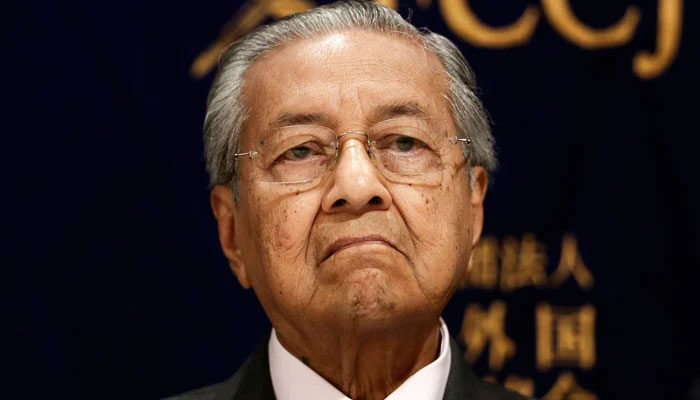Capital suggestion: Long-term leaders
Mahathir bin Mohamad governed Malaysia for a combined period of 24 years. In 1981, when Mahathir assumed office as Malaysia’s fourth prime minister, Malaysia’s per capita income stood at $1,843. By the time Mahathir stepped down in 2020, Malaysia’s per capita income had surged to $10,160. Mahathir’s long-term leadership gave Malaysia two things: political stability and policy continuity.
Park Chung-hee, a South Korean army general, served as the third president of South Korea, holding office for 18 years. His long-term leadership gave South Korea the ‘Miracle on the Han River,’ marked by industrialization, export-led growth, and successful land reforms. Park modernized the armed forces, bolstering defense capabilities. His centralized control gave South Korea two things: political stability and policy continuity. Those two things produced a South Korea where 52 million South Koreans now export goods valued at $803 billion.
Lee Kuan Yew served as the prime minister of Singapore for 31 years. Lee’s top priority was national cohesion followed by good education and an aggressive tackling of corruption. Lee’s long-term leadership gave Singapore two things: political stability and policy continuity. Those two things produced a Singapore where 6 million Singaporeans now export goods valued at $870 billion.
Paul Kagame, a Rwandan military officer, has been the president of Rwanda since 2000. Kagame played a key role in fostering national unity after the devastating Rwandan Genocide. He promoted four things: justice, forgiveness, healing and a unified society. Paul Kagame embraced technological advancements as a means to drive development. Kagame’s long-term leadership has given Rwanda two things: political stability and policy continuity. Those two things have transformed Rwanda into a hub for innovation and digital entrepreneurship in Africa.
Suharto, an Indonesian army general, served as the president of Indonesia for 31 years. Suharto emphasized two things: political stability and national unity. Suharto’s ‘New Order Government’ focused on three things: infrastructure development, industrialization, and the ‘Green Revolution’. Under his long-term leadership, Indonesia’s per capita income surged significantly, rising from $64 in 1968 to $1,054 by 1998.
Sheikh Hasina has been the prime minister of Bangladesh since 2008; that’s a total of 14 consecutive years (Pakistan has had nine prime ministers over the same time). Hasina has given three things to Bangladesh: a single-party rule, sustained political stability, and a favorable pro-business policy framework. Under Hasina, Bangladesh’s GDP has gone up from $102 billion to $460 billion.
Hun Sen, a former military commander, has been the prime minister of Cambodia since 1985. Hun Sen stabilized Cambodia after the turbulent years of the Khmer Rouge regime and subsequent civil conflicts. Sen’s long-term leadership has given Cambodia two things: political stability and policy continuity. Those two things have brought in foreign investment and tourism.
Figures such as Mahathir bin Mohamad, Park Chung-hee, Lee Kuan Yew, Paul Kagame, Suharto, Sheikh Hasina, and Hun Sen emerged as influential leaders who held power for extended periods, steering profound transformations in their respective nations. Their long-term leadership established the foundations for political stability and policy continuity. As architects of progress, their primary focus was on fostering unity.
Yes, the persistence of such long-term leadership does prompt scrutiny of democratic principles. While acknowledging the transformative successes achieved, it is imperative to critically evaluate the potential challenges and implications associated with long-term leadership tenures.
The writer is a columnist based in Islamabad. He tweets/posts @saleemfarrukh and can be reached at: farrukh15@hotmail.com
-
 King Charles Holds Emergency Meeting After Andrew Arrest: 'Abdication Is Not Happening'
King Charles Holds Emergency Meeting After Andrew Arrest: 'Abdication Is Not Happening' -
 Amazon Can Be Sued Over Sodium Nitrite Suicide Cases, US Court Rules
Amazon Can Be Sued Over Sodium Nitrite Suicide Cases, US Court Rules -
 'Vikings' Star Mourns Eric Dane's Death
'Vikings' Star Mourns Eric Dane's Death -
 Patrick Dempsey Reveals Eric Dane's Condition In Final Days Before Death
Patrick Dempsey Reveals Eric Dane's Condition In Final Days Before Death -
 'Heartbroken' Nina Dobrev Mourns Death Of Eric Dane: 'He'll Be Deeply Missed'
'Heartbroken' Nina Dobrev Mourns Death Of Eric Dane: 'He'll Be Deeply Missed' -
 Andrew Mountbatten-Windsor’s Arrest: What Happened When A Royal Was Last Tried?
Andrew Mountbatten-Windsor’s Arrest: What Happened When A Royal Was Last Tried? -
 Alyssa Milano Expresses Grief Over Death Of 'Charmed' Co-star Eric Dane
Alyssa Milano Expresses Grief Over Death Of 'Charmed' Co-star Eric Dane -
 Prince William, Kate Middleton Camp Reacts To Meghan's Friend Remarks On Harry 'secret Olive Branch'
Prince William, Kate Middleton Camp Reacts To Meghan's Friend Remarks On Harry 'secret Olive Branch' -
 Daniel Radcliffe Opens Up About 'The Wizard Of Oz' Offer
Daniel Radcliffe Opens Up About 'The Wizard Of Oz' Offer -
 Channing Tatum Reacts To UK's Action Against Andrew Mountbatten-Windsor
Channing Tatum Reacts To UK's Action Against Andrew Mountbatten-Windsor -
 Brooke Candy Announces Divorce From Kyle England After Seven Years Of Marriage
Brooke Candy Announces Divorce From Kyle England After Seven Years Of Marriage -
 Piers Morgan Makes Meaningful Plea To King Charles After Andrew Arrest
Piers Morgan Makes Meaningful Plea To King Charles After Andrew Arrest -
 Sir Elton John Details Struggle With Loss Of Vision: 'I Can't See'
Sir Elton John Details Struggle With Loss Of Vision: 'I Can't See' -
 Epstein Estate To Pay $35M To Victims In Major Class Action Settlement
Epstein Estate To Pay $35M To Victims In Major Class Action Settlement -
 Virginia Giuffre’s Brother Speaks Directly To King Charles In An Emotional Message About Andrew
Virginia Giuffre’s Brother Speaks Directly To King Charles In An Emotional Message About Andrew -
 Reddit Tests AI-powered Shopping Results In Search
Reddit Tests AI-powered Shopping Results In Search




